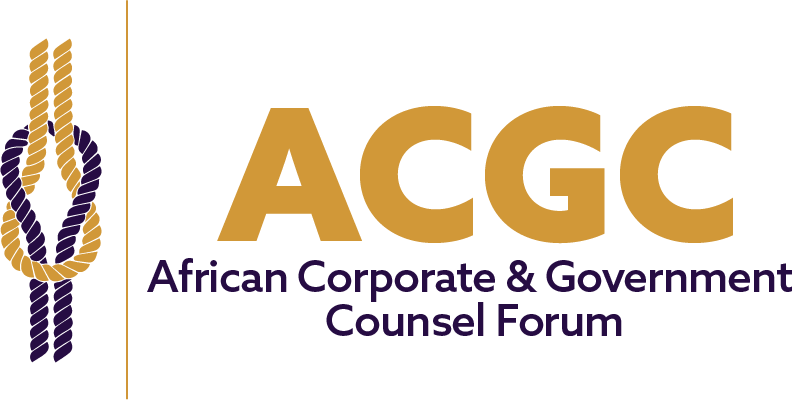FROM COUNSEL TO CATALYST: REINVENTING IN-HOUSE LEGAL IN THE DIGITAL AGE
The legal profession has always adapted to societal shifts, but technology is now transforming it at an unprecedented pace. Discussions around automation, AI-driven research, and cost efficiency dominate the conversation, but for in-house counsel, the key question is deeper: How can technology enhance legal functions while maintaining compliance, governance, and ethical integrity? This article explores how legal tech is reshaping corporate lawyering—its ethics, influence, and strategic importance—and how in-house counsel can leverage technology as a competitive advantage rather than a disruption.
- The Future of Junior Legal Roles—A Shift, Not an End
Legal technology has automated many traditional tasks once handled by junior lawyers, such as contract review, due diligence, and compliance checks. In-house legal teams are increasingly lean, requiring fewer entry-level hires while demanding more strategic contributions from existing staff. As legal departments prioritize efficiency and cost savings, junior legal professionals must evolve beyond rote legal work and embrace skills in legal operations, data analytics, and AI-enhanced risk management.

Case in Point: Multinational corporations like JPMorgan Chase have deployed AI tools such as COIN, which analyzes complex legal documents in seconds—eliminating the need for thousands of hours of manual review. Similarly, AI-driven contract lifecycle management (CLM) platforms have reduced in-house reliance on external counsel for routine contract negotiations.
How In-House Counsel Can Adapt:
- Develop cross-functional skills in legal operations, compliance technology, and data analytics.
- Embrace AI-powered legal research tools to provide faster and more strategic business advice.
- Guide junior staff toward roles that focus on legal risk assessment, policy implementation, and governance rather than repetitive document review.
-
The Digital General Counsel—Balancing Tech and Human Judgment
Virtual legal teams, AI-driven compliance platforms, and automated workflows have transformed how in-house counsel operate. While these tools increase efficiency, they also raise concerns about maintaining the human element in legal decision-making. With AI handling routine compliance monitoring and risk assessments, legal departments must ensure they do not become disconnected from business stakeholders.

Case in Point: Many Fortune 500 companies have implemented AI compliance monitoring to flag potential regulatory breaches in real-time. While this has enhanced proactive risk management, companies must be cautious—an over-reliance on AI-generated risk assessments without human oversight can lead to flawed conclusions.
How to Maintain a Strategic Legal Presence:
- Use legal tech as an enabler, not a substitute, for direct engagement with business leaders.
- Develop “digital presence” strategies, ensuring technology-driven interactions remain personalized and contextual.
- Advocate for “human-in-the-loop” AI applications where legal professionals validate automated decisions before implementation.
-
AI in Corporate Governance—Opportunity or Liability?
AI-driven predictive analytics are increasingly being used in compliance, litigation risk assessment, and regulatory reporting. However, these tools also introduce potential liabilities, particularly if they reinforce biases present in historical legal and regulatory decisions.

Case in Point: In the U.S., AI-driven tools like COMPAS have been criticized for racial bias in sentencing predictions. While corporate legal applications may seem less controversial, biased AI models in employment law, supplier vetting, and compliance monitoring can expose companies to legal and reputational risks.
How In-House Counsel Can Mitigate AI Bias:
- Ensure transparency in AI-driven legal and compliance tools, demanding auditability and explainability.
- Work with data scientists to assess AI models for potential biases before implementation.
- Develop internal policies governing the use of AI in legal decision-making, ensuring ethical and regulatory compliance.
-
Ethical Challenges in Tech-Enabled Legal Advocacy
The rise of digital communication and social media has given corporate legal teams a powerful voice in public discourse. However, the ethical implications of tech-enabled legal advocacy are complex—particularly for in-house counsel managing crisis communications, regulatory investigations, or reputational risks.

Case in Point: In 2020, several companies faced legal and PR challenges due to employee activism on social media. In-house legal teams had to balance employment law, corporate free speech policies, and regulatory constraints in their responses.
Best Practices for Ethical Digital Engagement:
- Establish clear guidelines on legal team participation in digital and social media discourse.
- Train corporate teams on the legal risks associated with digital communications, ensuring compliance with confidentiality and governance standards.
- Use digital advocacy responsibly to influence policy and regulatory discussions without compromising legal ethics.
-
Navigating the DIY Legal Services Disruption
Online legal services, contract automation platforms, and AI-generated legal advice are reshaping how businesses access legal support. While these tools improve efficiency, they also risk reducing the perceived value of in-house counsel.

Case in Point: Platforms like LegalZoom and AI-powered contract generators have enabled businesses to self-service legal needs. However, companies that rely too heavily on automated legal solutions often face challenges when dealing with complex regulatory, compliance, and litigation matters.
How In-House Counsel Can Reinforce Their Strategic Value:
- Leverage legal tech to streamline administrative tasks while emphasizing the unique value of strategic legal counsel.
- Position in-house counsel as business advisors, ensuring legal teams contribute to decision-making beyond contract review and compliance.
- Advocate for responsible use of DIY legal tools within the company, ensuring they supplement rather than replace professional legal oversight.
Conclusion: The Future of In-House Counsel in a Digital Age
As legal technology advances, in-house counsel must champion ethical governance and ensure that innovation enhances—not undermines—corporate compliance and justice. By embracing technology while reinforcing the irreplaceable value of human judgment, corporate legal teams can position themselves as indispensable strategic advisors in an increasingly digital world.
The challenge ahead is clear: In-house counsel must evolve, not just to keep pace with technology but to lead its responsible integration within corporate legal functions. By balancing efficiency, ethics, and strategic insight, the modern in-house lawyer can transform legal tech from a disruptor into a powerful ally.
Author: Evelyne Naikoba
Position: Company Secretary, Hortifreshffv

